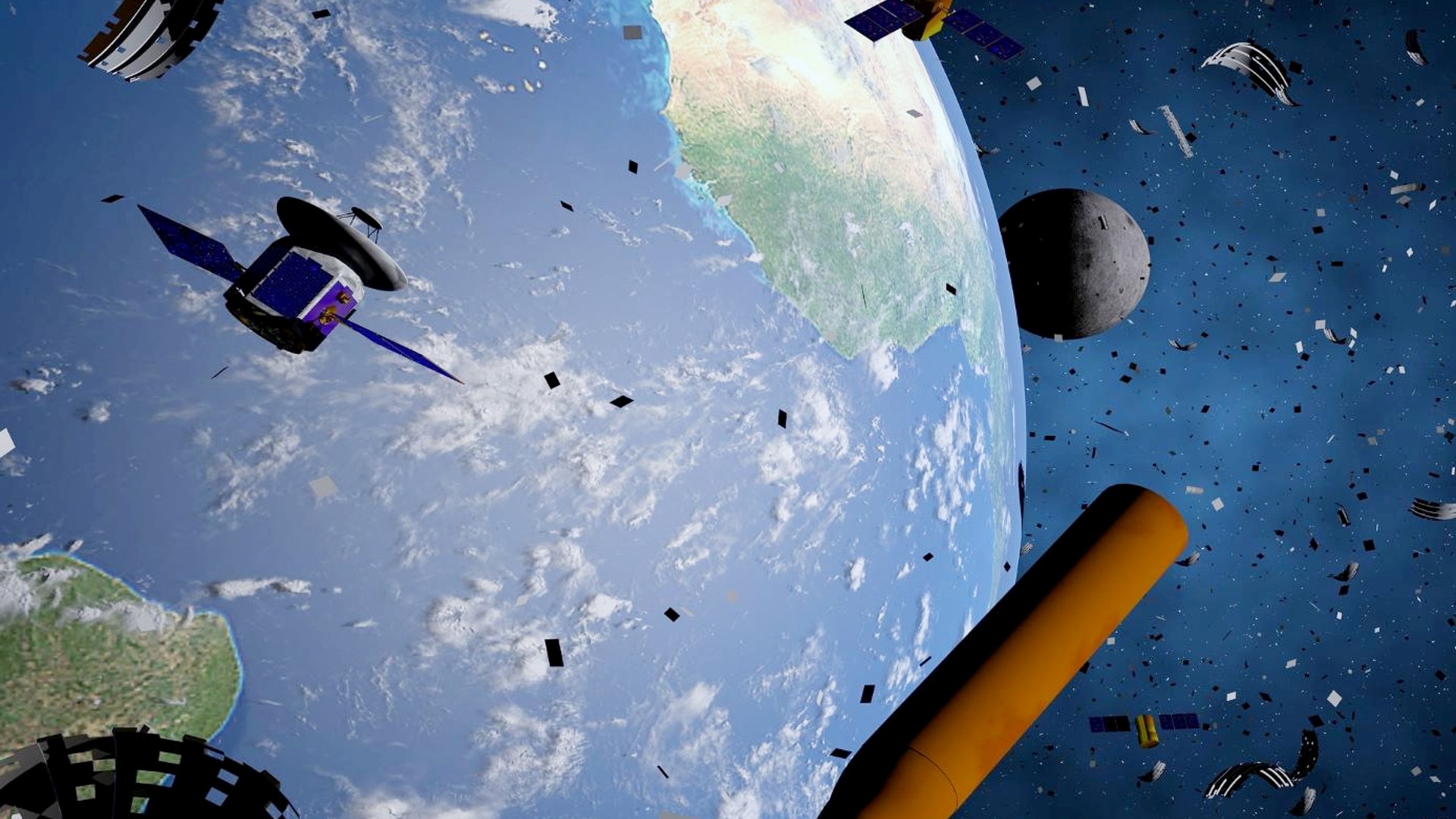The Best Mars Books
Getting excited about NASA's InSight lander touching down on Mars? We are, too! Here are some of the best books for young and old to read up about the Red Planet.
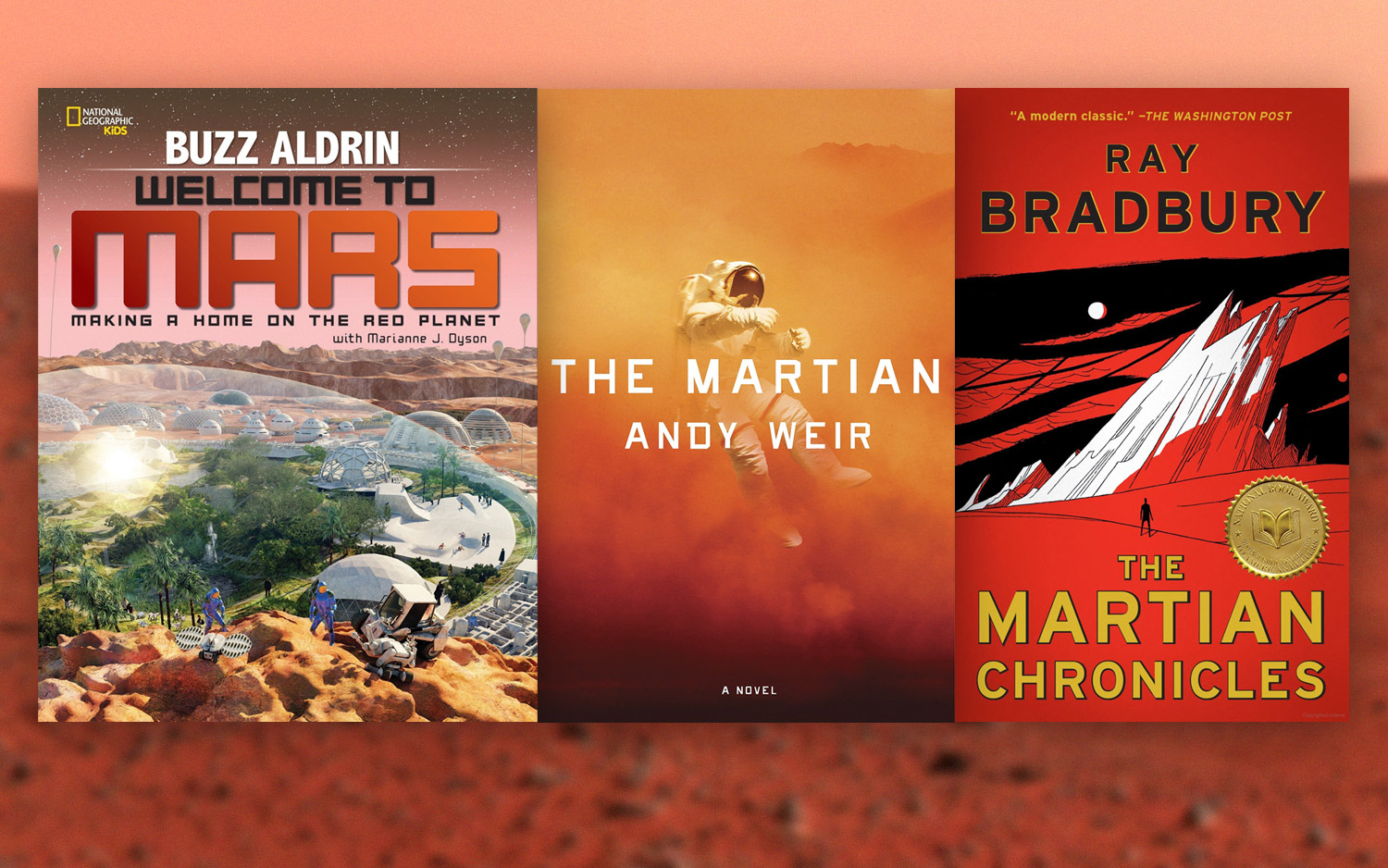
Best Books About Mars
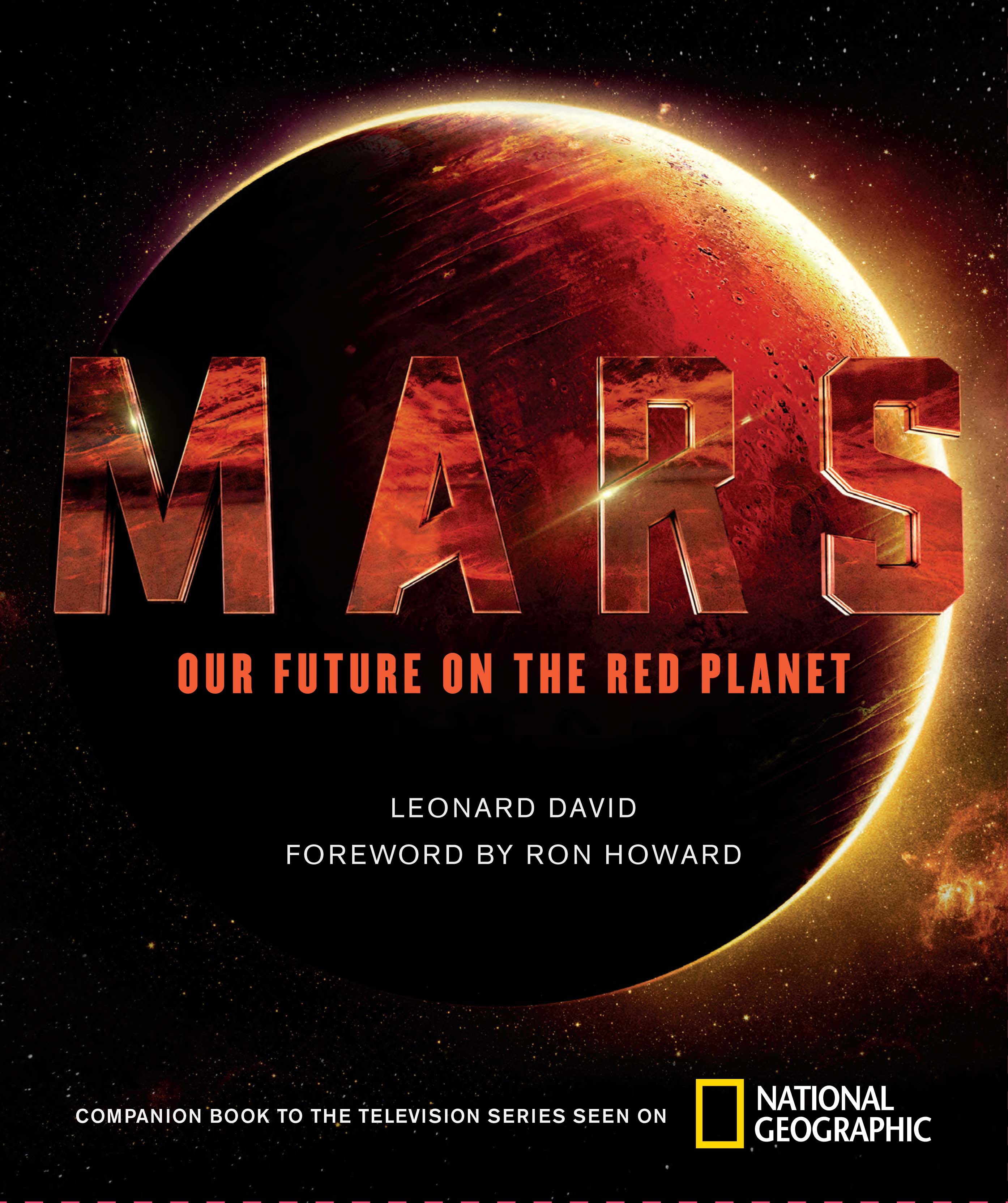
Mars: Our Future on the Red Planet
A journey to our future
Sending people to Mars won't be easy, but the journey isn't entirely out of reach. "Mars: Our Future on the Red Planet" (National Geographic Books, 2016) explains how the human race can conquer the challenges of getting to Mars and thriving on the Red Planet, blurring the lines between science fiction and reality.
In the new work, award-winning journalist (and Space.com contributor) Leonard David takes readers on a journey to the future to show what it would take for people to travel to Mars and not just survive, but also prosper in the new world. ~Hanneke Weitering
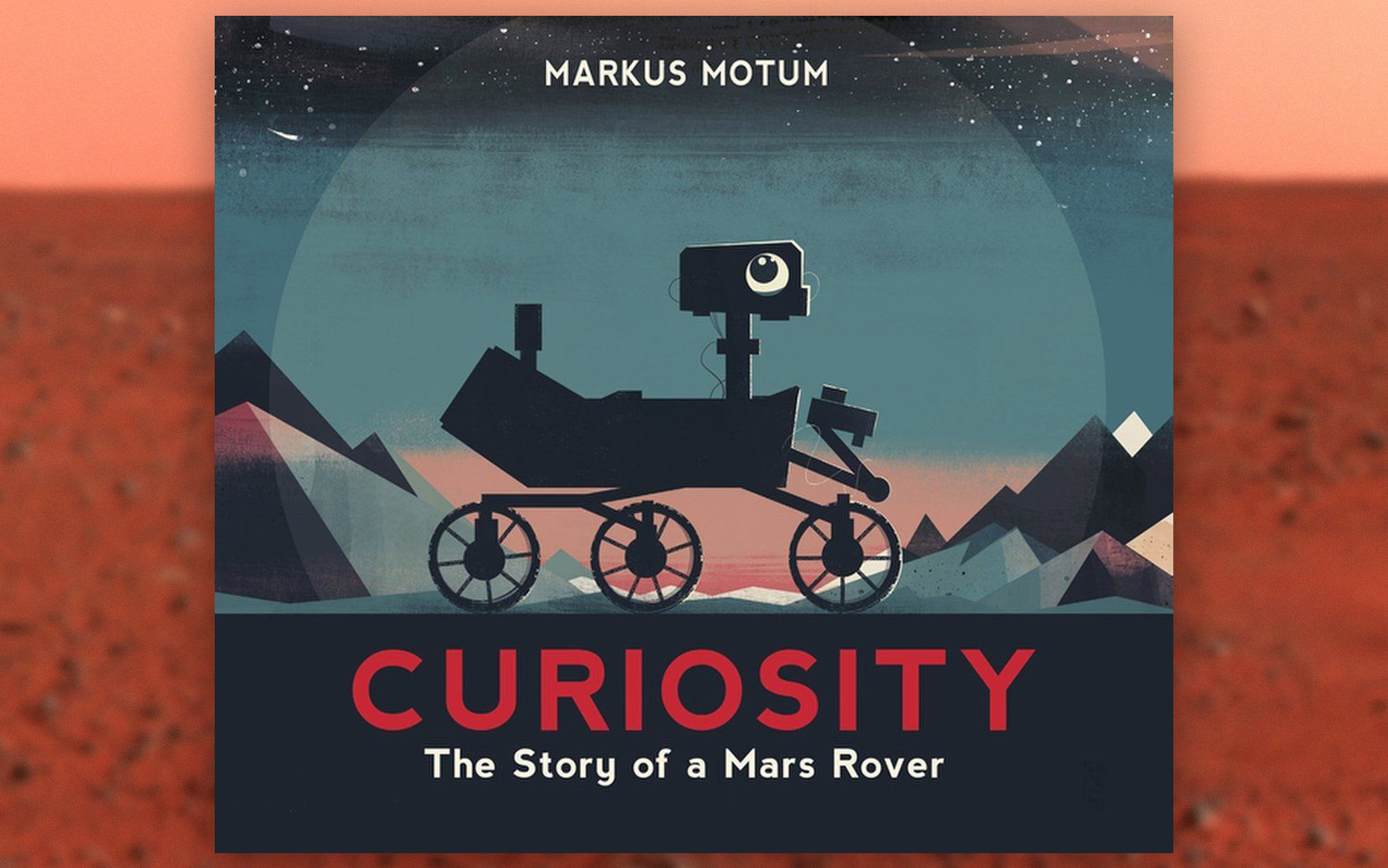
Curiosity:The Story of a Mars Rover
We love you little robot
"Curiosity: The Story of a Mars Rover" (Candlewick Press, 2018) is a children's book brimming with artwork that enchants and abundantly details the interplanetary mission roaming and studying the surface of Mars. Author and illustrator Markus Motum admit he, too, was swept up by the news of Curiosity's tricky landing, and it was the public's excitement over the rover which inspired the book.
With consultation from Mars experts, Motum's work offers grand scenes that are conceptual and still accurate. ~Doris Elin Salazar

The Martian
Fear his botany powers
"The Martian" (Random House, 2014) is a truly great science fiction book that's heavy on the science. Weir tells the story of Mark Watney, a fictional NASA astronaut stranded on Mars, and his difficult mission to save himself from potential doom in the harsh Red Planet environment.
Watney seems to have everything against him, yet Weir deftly explains not only what Watney's survival needs are but also how he goes about trying to make them work. "The Martian" was, of course, also made into a movie in 2015; the film stars Matt Damon as Watney and is directed by space movie veteran Ridley Scott. ~Miriam Kramer
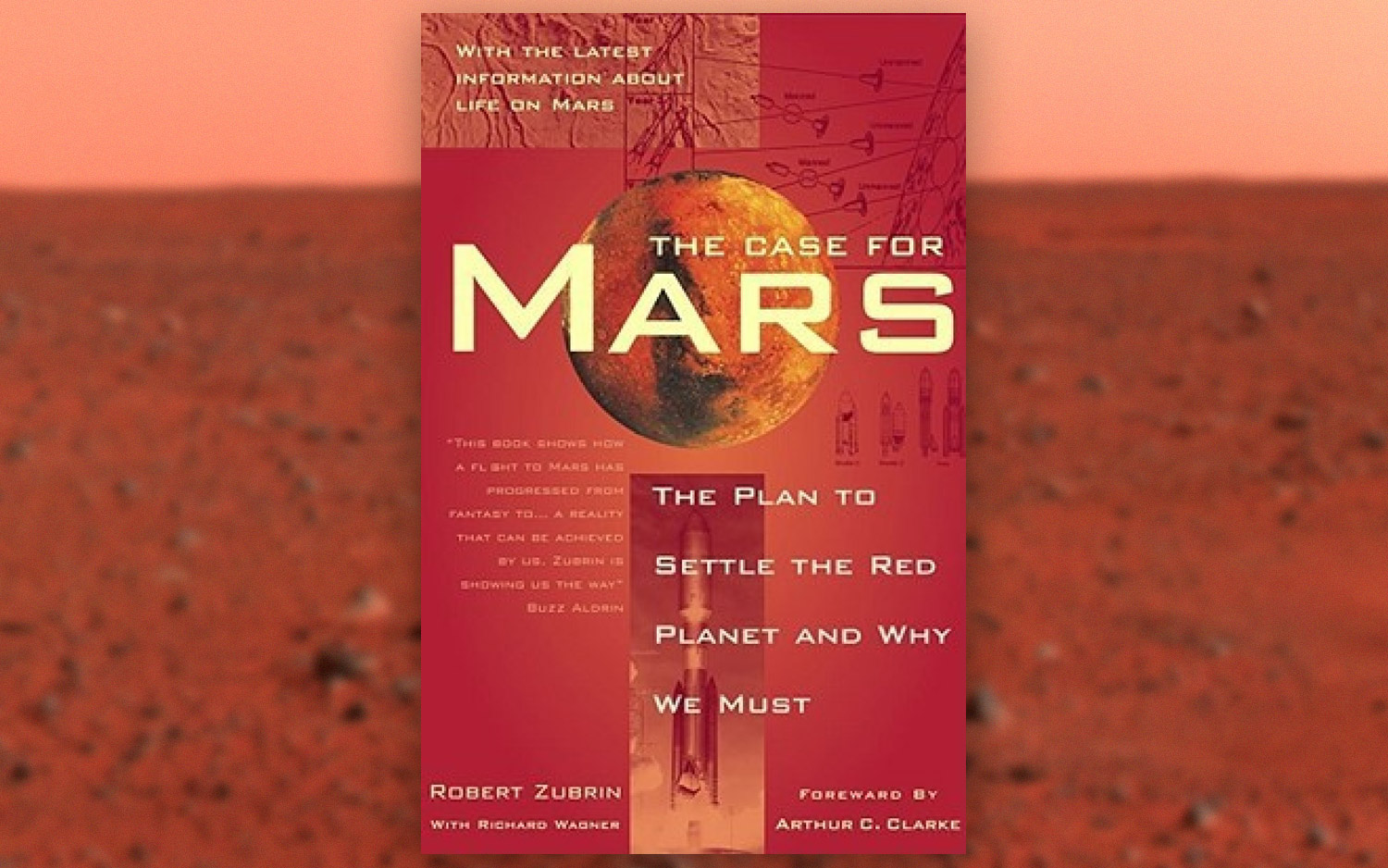
The Case for Mars
Is it really a reachable goal?
"The Case for Mars" is a landmark work, helping to cast Red Planet settlement as an achievable goal rather than a sci-fi dream. The book advocates traveling light and living off the Martian land as much as possible. For example, rockets launching from Mars and rovers exploring the surface would both be fueled by methane/oxygen propellant manufactured using carbon dioxide pulled from the Red Planet's air.
Settlers would get their water — as well as the materials needed to make iron, steel and glass — from the Martian soil. "The Case for Mars" also lays out how to terraform Mars, making it a warmer and wetter place more hospitable to human life. Though the book is nearly 20 years old, it remains an engaging and informative read today, because putting boots on Mars remains the top goal of the international human spaceflight community. ~Mike Wall
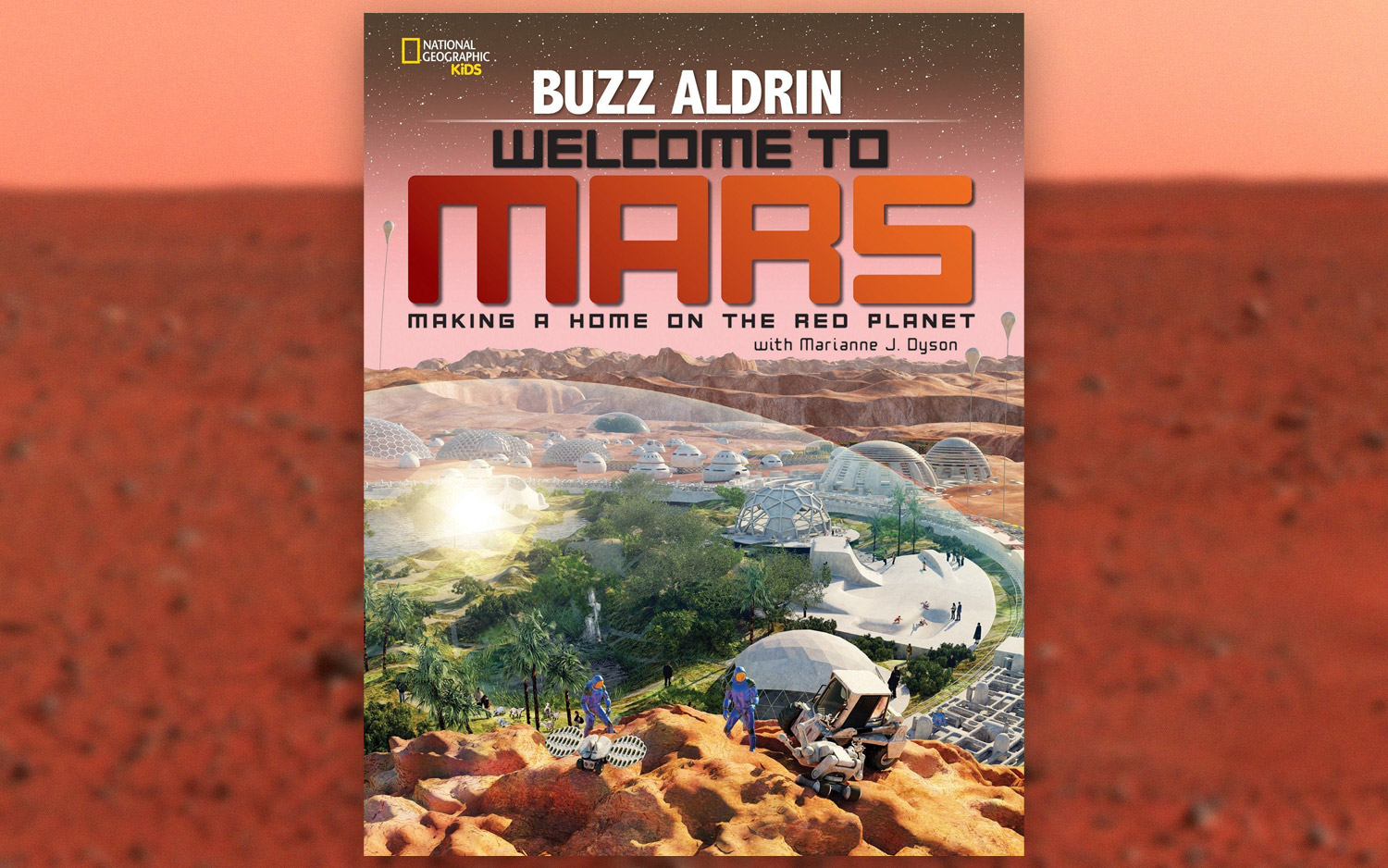
Welcome to Mars
An astronaut's thoughts
Kids can hop aboard the first expedition to Mars in "Welcome to Mars" (National Geographic Children's Books, 2015) by astronaut Buzz Aldrin, written with author, physicist and former NASA flight controller Marianne Dyson. Aldrin's tale about a trip on the "Aldrin Cycler" spaceship to Mars covers the history of Mars exploration, the steps needed to get there and the process of building out from the first tentative toehold to a permanent colony on the planet.
It's full of countless specific details — exactly what the first explorers will and won't need to bring along, the best and most entertaining modes of transportation once there and exactly why the first habitats will be round and bubble-like, to name a (very) few. The book is also peppered with hands-on activities to demonstrate aspects of the journey and the planet's conditions. This book is not Aldrin's first proposing a mission to Mars, but this one is carefully calibrated to get young, curious children excited about the prospect. ~Sarah Lewin
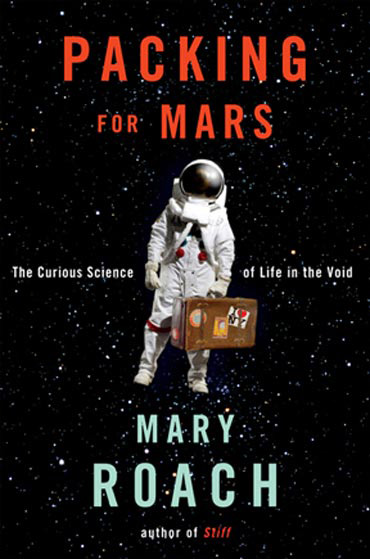
Packing for Mars
How will we go to the toilet on mars?
"Packing for Mars" (W.W. Norton & Company) isn't just about Mars, but we couldn't help but include it. The book addresses, in satisfyingly rich and refreshingly unabashed detail, the questions that everybody has about human spaceflight. For example: How do astronauts go to the bathroom in zero or reduced gravity? How do they keep clean? What would it be like to have sex in space?
Has anyone ever had sex in space? But the book is far from just a catalog of the scurrilous and scatological; it delves seriously into the physiological and psychological effects of spaceflight and how astronauts, doctors, and engineers prepare to meet such challenges. In short, "Packing for Mars" is an incredibly fun read that will give you a better understanding of the rigors of human spaceflight — and provide a wealth of choice details that you can dole out at parties to impress and disgust your friends. ~Mike Wall
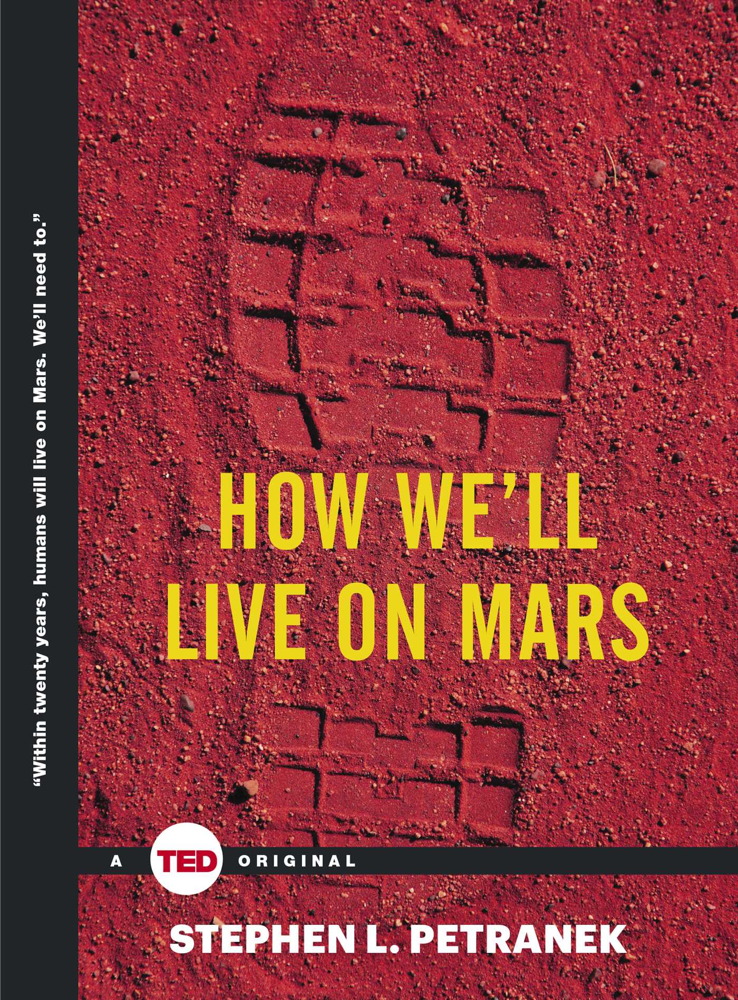
How We'll Live on Mars
Welcome to my TED book
Stephen Petranek, an award-winning journalist and technology forecaster, thinks people will be living on Mars within 20 years. Petranek states his case in a new book called "How We'll Live on Mars" (Simon & Schuster/TED, 2015). Complementing Petranek's TED talk of the same name, the book paints a picture of humanity's first journey to the Red Planet, which he sets in 2027, and describes the key technologies needed to reach, survive and thrive on the planet and exactly how that process would play out.
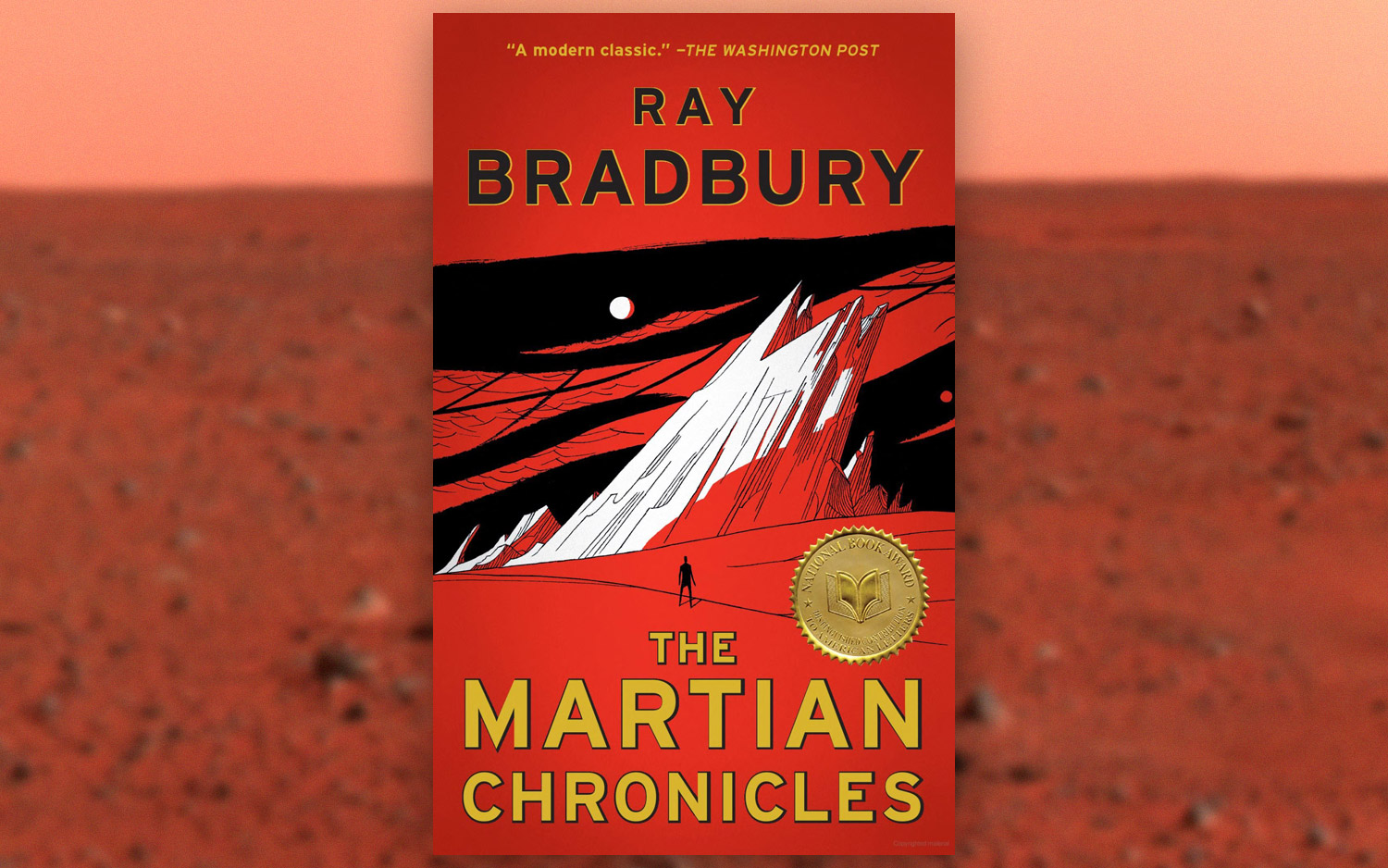
The Martian Chronicles
A modern day classic
In case you haven't heard of him, Ray Bradbury is an icon of science fiction writing. In "The Martian Chronicles" (Doubleday, 1951), Bradbury explores the gradual human settlement of the Red Planet, through a series of lightly connected stories. Bradbury paints the Martian landscape and its inhabitants with masterstrokes, but equally strong is his portrayal of the psychological dangers that await the human settlers who arrive there. This, as well as the space-themed stories in Bradbury's other classic collection "The Illustrated Man," struck a chord with me when I was young and dreamed about traveling to the stars.
Reading his work today, it is amazing to see that although Bradbury writes from a time when human space travel hadn't yet begun (the book was first published in 1950), the issues and questions his stories raise are still relevant as humanity takes its first steps into that great frontier. ~Calla Cofield
Breaking space news, the latest updates on rocket launches, skywatching events and more!

Space.com is the premier source of space exploration, innovation and astronomy news, chronicling (and celebrating) humanity's ongoing expansion across the final frontier. Originally founded in 1999, Space.com is, and always has been, the passion of writers and editors who are space fans and also trained journalists. Our current news team consists of Editor-in-Chief Tariq Malik; Editor Hanneke Weitering, Senior Space Writer Mike Wall; Senior Writer Meghan Bartels; Senior Writer Chelsea Gohd, Senior Writer Tereza Pultarova and Staff Writer Alexander Cox, focusing on e-commerce. Senior Producer Steve Spaleta oversees our space videos, with Diana Whitcroft as our Social Media Editor.
